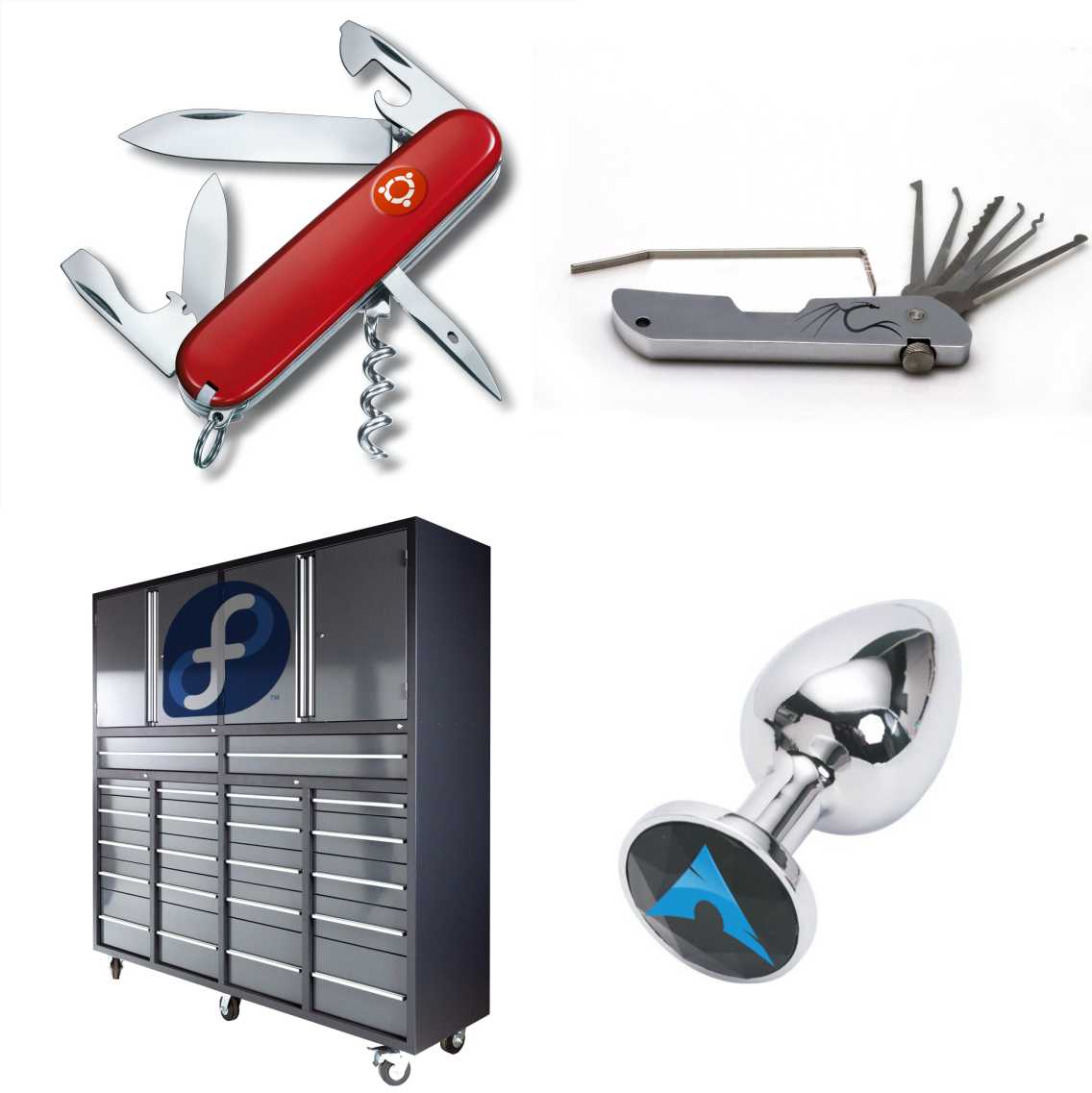this post was submitted on 14 Nov 2023
838 points (89.7% liked)
linuxmemes
27392 readers
267 users here now
Hint: :q!
Sister communities:
Community rules (click to expand)
1. Follow the site-wide rules
- Instance-wide TOS: https://legal.lemmy.world/tos/
- Lemmy code of conduct: https://join-lemmy.org/docs/code_of_conduct.html
2. Be civil
- Understand the difference between a joke and an insult.
- Do not harrass or attack users for any reason. This includes using blanket terms, like "every user of thing".
- Don't get baited into back-and-forth insults. We are not animals.
- Leave remarks of "peasantry" to the PCMR community. If you dislike an OS/service/application, attack the thing you dislike, not the individuals who use it. Some people may not have a choice.
- Bigotry will not be tolerated.
3. Post Linux-related content
- Including Unix and BSD.
- Non-Linux content is acceptable as long as it makes a reference to Linux. For example, the poorly made mockery of
sudoin Windows. - No porn, no politics, no trolling or ragebaiting.
4. No recent reposts
- Everybody uses Arch btw, can't quit Vim, <loves/tolerates/hates> systemd, and wants to interject for a moment. You can stop now.
5. 🇬🇧 Language/язык/Sprache
- This is primarily an English-speaking community. 🇬🇧🇦🇺🇺🇸
- Comments written in other languages are allowed.
- The substance of a post should be comprehensible for people who only speak English.
- Titles and post bodies written in other languages will be allowed, but only as long as the above rule is observed.
6. (NEW!) Regarding public figures
We all have our opinions, and certain public figures can be divisive. Keep in mind that this is a community for memes and light-hearted fun, not for airing grievances or leveling accusations. - Keep discussions polite and free of disparagement.
- We are never in possession of all of the facts. Defamatory comments will not be tolerated.
- Discussions that get too heated will be locked and offending comments removed.
Please report posts and comments that break these rules!
Important: never execute code or follow advice that you don't understand or can't verify, especially here. The word of the day is credibility. This is a meme community -- even the most helpful comments might just be shitposts that can damage your system. Be aware, be smart, don't remove France.
founded 2 years ago
MODERATORS
you are viewing a single comment's thread
view the rest of the comments
view the rest of the comments

Docker images should really be distroless most of the time. There's way too much junk in the majority of Docker images when in most cases, you really just need your app and whatever dynamic libraries or runtimes it requires (if you can't statically compile it). You don't need an OS in there!
Also there'd be way more servers running Debian compared to Ubuntu.
You often (if not most of the time) need some infrastructure in OCI containers (while we're at it, let's get rid of the misnomer Docker image). And that's going to be some subset of a distribution hand-crafted for that purpose. Most of the time, that should be Alpine, because they provide the slimmest base image.
Distroless containers (e.g. https://github.com/GoogleContainerTools/distroless, Chiselled Ubuntu, etc) are often smaller than Alpine ones. Google's smallest Debian-based one is around 2MB.
I have a Dockerized C# app... I'm going to try .NET Native AOT (which was improved a lot in .NET 8, released today) to compile it into a self-contained binary, and see how well it works with a distroless base container.
I'm curious to hear how that works out. I'm a big fan of C#; not so much the Microsoft ecosystem. I'd say for maximum scalability you'd want languages which compile to small binaries. So, Go, Rust, C++, C, and theoretically some others. The approach with Java and C# to bundle the framework, JIT, etc, and then try to shave off as much as you can get away with feels kind of backwards. And I get the excitement of the Java folks when they manage to create a self-contained binary with GraalVM and co of 12mb. Like, that's impressive, but had you developed the same thing with Go it would be .5mb. Curious to see how .NET fares in that comparison to Java.
In the dotnet 8 announcement the brag is that a minimal web service will be 8.5 megs
https://learn.microsoft.com/en-us/aspnet/core/release-notes/aspnetcore-8.0?view=aspnetcore-8.0#native-aot
Google's distroless base images are based on Debian and are smaller than Alpine images.
Debian isn't really an option if you want paid support. You really only have Red Hat, SUSE, and Canonical. Of course, there are a lot of Ubuntu servers out there.